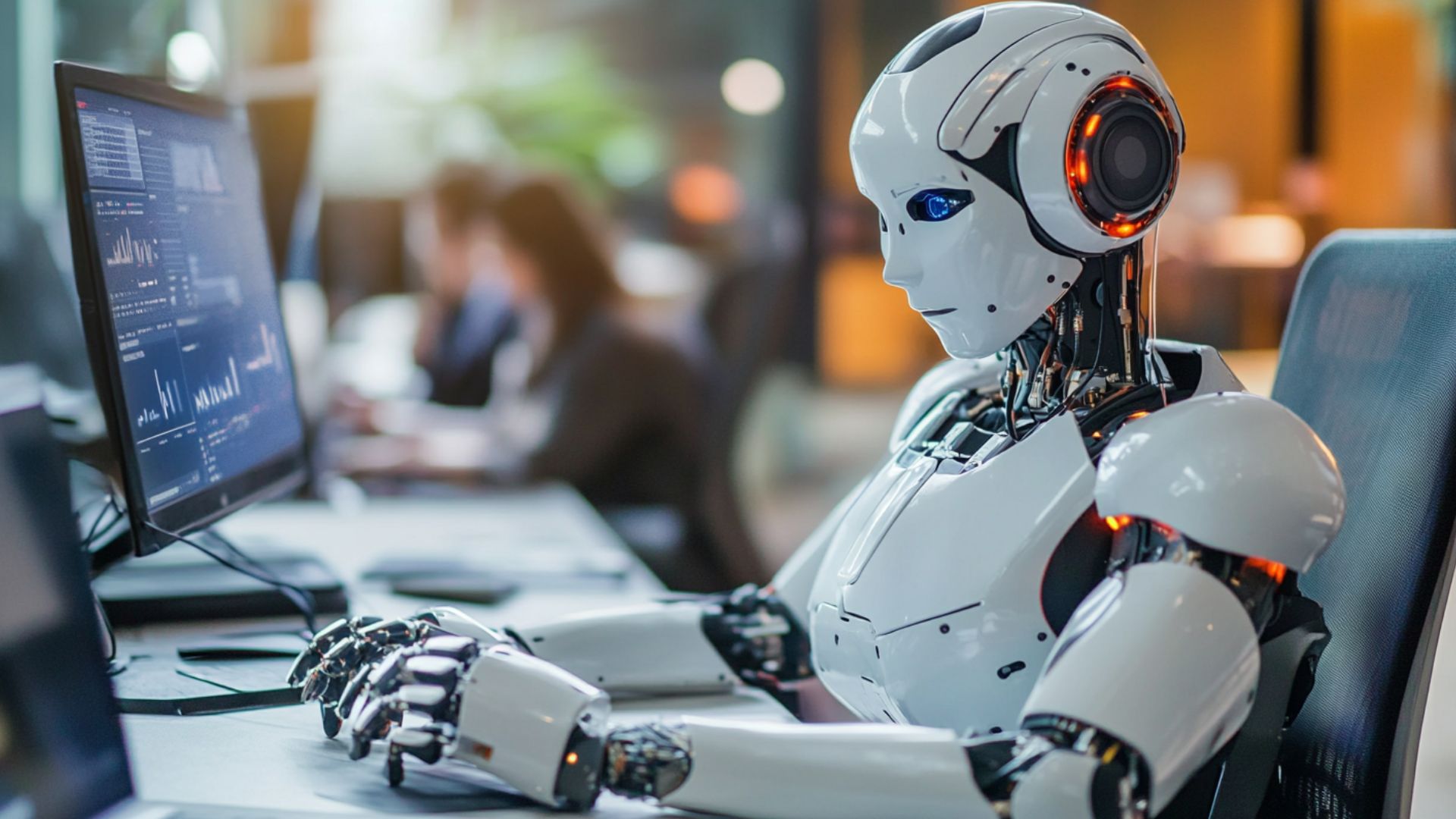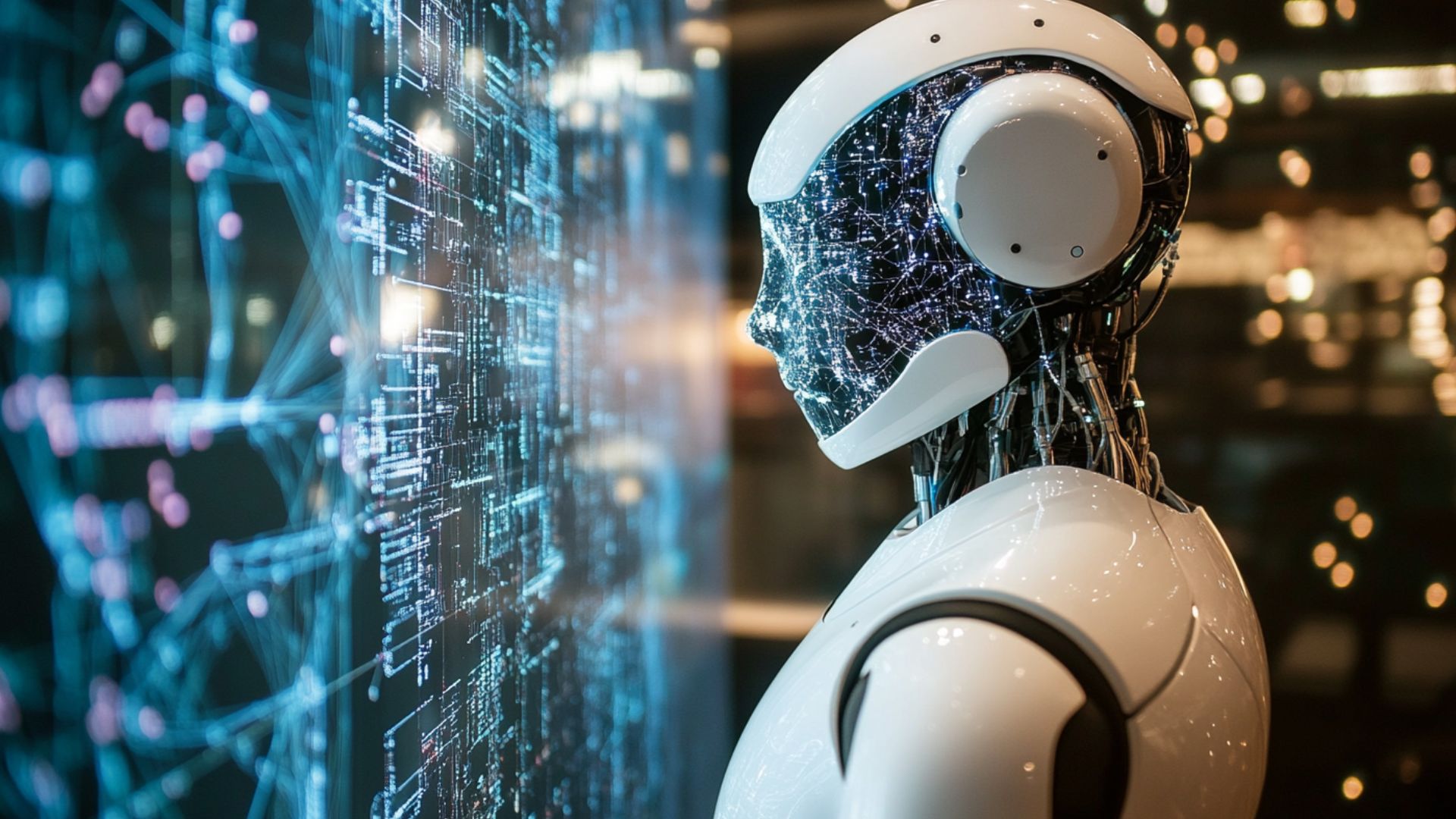Revolutionizing Modern Industries: The Universal Impact of AI

Artificial intelligence (AI) is making waves in modern areas. This is a crucial driver of transformation across the globe. With AI’s help, the impossible becomes possible. The future is now. Science fiction is turning into reality. It has versatile applications and wide-reaching influence. They have made it an indispensable tool in numerous fields and sectors. AI's capabilities are generally harnessed to improve operations. Digital tools also boost productivity and unlock new possibilities. Understanding what industries use AI reveals the extensive scope of its impact. Predictive analytics in the medical area improve patient outcomes.
AI-driven algorithms in finance enhance risk management. Automation in manufacturing boosts production efficiency. The core benefits of AI include increased efficiency and enhanced accuracy. Also, it improved decision-making processes. These advantages are reshaping how businesses operate. They foster a new era of growth and development. AI continues to evolve. It has the potential to drive innovation and create value across diverse industries. This is becoming increasingly apparent. It solidifies AI's role as a cornerstone of modern technology and progress.
Enhancing Operational Efficiency with AI
AI technologies are revolutionizing how organizations streamline operations. They universally reduce costs and save time across various processes. The impact of AI on operational efficiency is profound. It offers benefits that span multiple sectors. Can the AI industry enhance workflows and optimize resource allocation? This is evident in numerous ways:
- Automated Processes: AI can automate routine tasks. It reduces the need for manual intervention and minimizes human error.
- Predictive Maintenance: In manufacturing, it helps prevent equipment failures. Predictive maintenance forecasts when maintenance is necessary, thus avoiding costly downtime.
- Supply Chain Optimization: AI enhances logistics management. It optimizes inventory levels. AI predicts demand and improves logistics.
- Customer Service: AI-powered chatbots and virtual assistants streamline customer service operations. They handle inquiries and provide support. AI frees up human agents for more complex tasks.
AI-driven automation and predictive analytics significantly boost productivity in general work environments. By analyzing large datasets, it identifies patterns and insights. They can inform decision-making and strategy. In artificial intelligence industries, the productivity gains are particularly noticeable:
- Data Analysis: AI quickly processes and analyzes vast amounts of information. It enables faster and more accurate decision-making.
- Workflow Automation: Automated workflows streamline tasks and processes, reducing the time required.
- Resource Management: AI optimizes resource allocation. It ensures the right resources are available when needed, thus enhancing productivity.
- Performance Monitoring: AI systems can monitor employee performance and workflow efficiency. It provides feedback and identifies areas for improvement.
These advancements demonstrate how artificial intelligence industries leverage AI to transform operations. It also drives efficiency and productivity to new heights.
Transforming Decision Making with Data-Driven Insights
AI utilizes big data to provide deeper insights and support strategic decision-making. Here's how it leverages big data across various sectors:
- Data Collection: AI systems gather vast amounts of information from multiple sources. It ensures comprehensive datasets.
- Data Processing: Advanced algorithms quickly analyze and process data, identifying patterns and trends.
- Predictive Analytics: AI uses historical data to predict future trends. It helps industries anticipate changes and plan accordingly.
- Real-Time Analysis: Continuous data monitoring allows real-time insights. It enables swift and informed decision-making.
Enhanced analytics through AI for industry brings many benefits, enabling precise, data-driven decisions. They reduce risks and uncover new opportunities:
- Risk Mitigation: AI identifies potential risks early. It allows for proactive measures to mitigate them.
- Opportunity Identification: Data-driven insights reveal new market capabilities and areas for growth.
- Cost Reduction: Optimized operations and resource management lead to significant expense savings.
- Competitive Advantage: Industries leveraging AI gain a competitive edge. They make informed and strategic decisions.
- Improved Accuracy: Enhanced analytics reduce human error. AI ensures more accurate and reliable decision-making.
- Innovation: AI-driven insights foster it by highlighting emerging trends and technologies.
AI for the industry leverages big data and enhanced analytics. It transforms decision-making processes and drives accuracy. AI also grows across various sectors.
Innovating Customer Interactions and Personalization
AI enhances customer interactions by enabling personalization at scale. It transforms how businesses engage with their customers. AI-driven tools analyze vast amounts of data to understand individual preferences and behaviors. They allow companies to offer customized experiences:
- Personalized Recommendations: AI algorithms suggest products and services tailored to individual tastes. They increase relevance and satisfaction.
- Chatbots and Virtual Assistants: These AI-powered tools provide instant, personalized responses. They improve customer service efficiency and availability.
- Predictive Analytics: AI anticipates customer needs and behaviors. It enables proactive service and targeted marketing efforts.
- Sentiment Analysis: AI analyzes customer feedback and sentiments to tailor interactions. It also resolves issues promptly.
AI in different industries significantly boosts customer satisfaction and loyalty. This is through tailored experiences and proactive service. They offer several advantages:
- Increased Customer Satisfaction: Personalized interactions make customers feel valued and understood. They enhance their overall experience.
- Enhanced Loyalty: Consistent, customized service builds trust. It encourages repeat business, fostering long-term customer loyalty.
- Proactive Service: Predictive AI tools enable businesses to address issues before they escalate. It leads to higher customer retention and satisfaction.
- Efficient Resource Allocation: AI optimizes customer service operations. It allows human agents to focus on complex issues. This is while automated systems handle routine inquiries.
Businesses should leverage AI in different industries. They can transform customer engagement. Businesses may ensure personalized and efficient service. It meets and exceeds customer expectations. Let's explore what industries use AI the most in their customer engagement cases:
| Industry | Use cases | Key benefits |
| Retail | Personalized product recommendations, chatbots | Increased sales, improved customer service |
| Finance | Fraud detection, personalized financial advice | Enhanced security, tailored financial planning |
| Healthcare | Patient support chatbots, customized treatment plans | Better patient engagement, improved health outcomes |
| Travel | Customized travel itineraries, virtual assistants | Enhanced travel experience, higher satisfaction |
| Entertainment | Content recommendations, customized marketing | Increased viewership, better user experience |
| E-commerce | Personalized shopping experiences, AI-driven customer support | Higher conversion rates, improved customer loyalty |
What industries use AI the most showcases the broad application of AI in enhancing customer interactions. It drives satisfaction. Computerized technologies and innovations foster loyalty across various sectors.
Boosting Innovation and Product Development

AI significantly contributes to innovation. It expedites research processes. The latest technologies enhance product development cycles across various fields. Here is how AI use cases by industry:
- Healthcare: AI accelerates drug discovery. Also, it improves diagnostic accuracy.
- Automotive: AI-driven simulations significantly optimize vehicle design. They also improve autonomous driving technologies.
- Manufacturing: AI streamlines production processes. It also ensures predictive maintenance.
- Finance: AI enhances algorithmic trading and fraud detection.
- Retail: AI personalizes shopping experiences. Also, it optimizes inventory management.
Industries impacted by AI benefit from AI-driven insights. They lead to more efficient design, development, and deployment phases:
- Efficient Design: AI optimizes design through data analysis, ensuring products meet market needs.
- Accelerated Development: AI automates repetitive tasks, allowing teams to focus on innovation.
- Enhanced Quality Control: AI identifies defects and optimizes production for higher quality.
- Market Readiness: AI analyzes market trends, ensuring timely product launches.
- Sustainability: AI reduces resource waste, promoting eco-friendly practices.
AI’s impact on research and development transforms industries. It drives innovation and efficiency across the board.
Reinforcing Security and Compliance
AI is present in virtually every sector. AI significantly enhances security measures across various sectors:
- Cybersecurity: AI detects and mitigates threats in real-time. It analyzes vast amounts of data to identify anomalies and potential breaches.
- Finance: AI monitors transactions for fraudulent activity, ensuring financial systems are secure.
- Healthcare: AI safeguards patient data, ensuring compliance with privacy regulations.
- Retail: AI detects suspicious activities and secures payment gateways, protecting customer information.
- Manufacturing: AI monitors and secures industrial control systems, preventing unauthorized access.
What industries will be affected by AI in terms of compliance and regulation? It helps organizations meet regulatory compliance more efficiently. AI automates compliance processes and monitoring:
- Energy: AI monitors environmental regulations, ensuring operations are eco-friendly and compliant.
- Legal: AI automates document review and compliance checks, streamlining legal processes.
AI's role in enhancing security and compliance is transformative. It automates and improves security protocols. AI ensures robust protection and efficient regulatory adherence across various fields. It drives excellent safety and compliance.
Predicting Future Trends and Market Demands
Industries are leveraging the power of AI to predict market trends and demands. They ensure businesses stay ahead of the curve. AI's role in forecasting and market analysis includes:
- Retail: AI analyzes consumer behavior and purchase patterns. It helps retailers anticipate product demands and optimize inventory.
- Finance: AI predicts market movements and investment opportunities. It enables better financial planning and strategy.
- Healthcare: AI forecasts disease outbreaks and patient needs. It improves resource allocation and treatment planning.
- Manufacturing: AI anticipates equipment failures and supply chain disruptions. It ensures smoother operations and minimizes downtime.
- Energy: AI predicts energy consumption trends. It aids in efficient resource management and policy-making.
Companies that will benefit from AI can harness these predictive capabilities. They enable proactive business strategies and risk management:
- Proactive Strategies: Businesses can anticipate market shifts and adjust their strategies accordingly. They will stay competitive and relevant.
- Risk Management: AI identifies potential vulnerabilities. It allows companies to mitigate them before they escalate.
- Customer Insights: Predictive analytics provide a deeper understanding of customer preferences and behaviors. It leads to more effective marketing and product development.
- Operational Efficiency: Forecasting helps optimize supply chains, resources, and operations. It also reduces costs and enhances efficiency.
- Innovation: Companies will anticipate future trends. They can focus on the latest solutions and product development. It meets emerging market needs.
Industries impacted by AI can navigate future challenges more effectively. They will be positioned for success.


